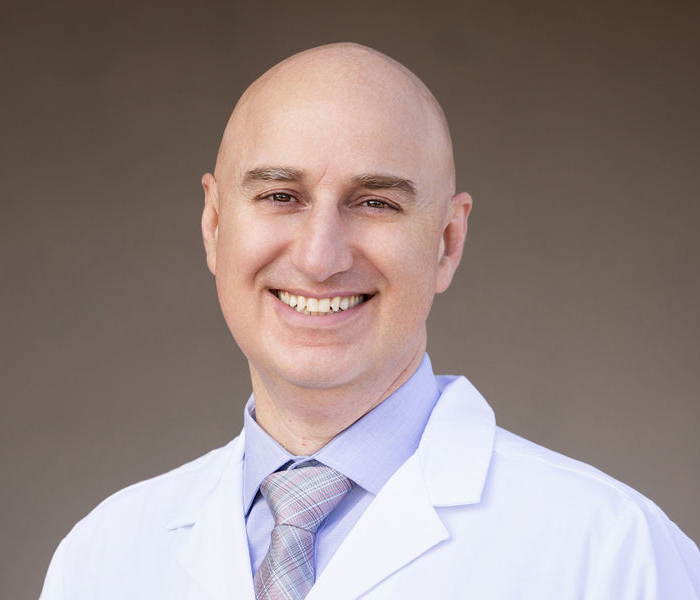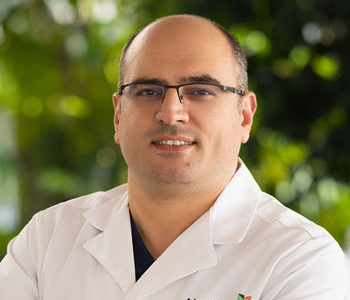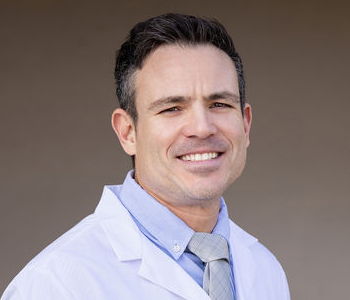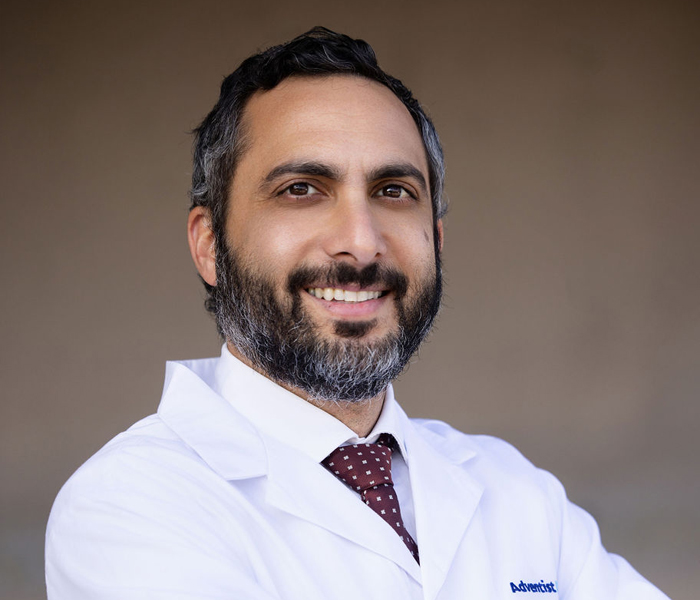Pulmonology
Advanced treatment focusing on lung diseases and respiratory tract
Pulmonology
At Adventist Health Glendale, our board-certified pulmonologists work closely with internists, cardiologists, oncologists, pathologists, radiation oncologists, radiologists and surgeons including cardiothoracic surgeons to diagnose and treat a wide range of respiratory issues and breathing disorders.
When to see a pulmonologist
A cough associated with a cold, flu, or allergies doesn’t usually require the services of a pulmonologist unless the cough persists for more than three weeks or becomes severe.
However, the symptoms below could be related to a more severe lung condition and may warrant a consultation with a pulmonologist:
- Chest pain or tightness
- Dizziness, lightheadedness or fainting
- Difficulty breathing, especially during exercise
- Fatigue
- Wheezing
- Recurring or chronic bronchitis or colds that impact your respiratory system
- Asthma that isn't well-controlled or has unidentified triggers
- Hemoptysis or seeing blood in the sputum
- Any unintentional weight loss
- Chronic smokers
Conditions we treat
The experienced pulmonologists at Adventist Health Glendale diagnose and treat a spectrum of respiratory issues, including:
- Acute Respiratory Distress Syndrome (ARDS)
- Asthma
- Bronchitis
- Chronic Cough
- Chronic Obstructive Pulmonary Disease (COPD)
- COVID-19
- Cystic Fibrosis
- Difficulty Breathing (Dyspnea)
- Lung Cancer
- Mesothelioma
- Pneumonia
- Pulmonary Embolism
- Pulmonary Fibrosis
- Pulmonary Hypertension
- Sarcoidosis
- Sleep Apnea
- Tuberculosis
- Lung nodules or mass
Interventional Pulmonology
Lung and respiratory diseases are often difficult to diagnose. Specialists in our interventional pulmonology program utilize the latest, minimally invasive procedures to diagnose and treat respiratory issues accurately.
An interventional pulmonologist is a physician with background of training in pulmonology and critical care medicine with a separate dedicated one year fellowship and board certification in interventional pulmonology. An interventional pulmonologist specializes in using minimally invasive diagnostic and therapeutic technologies to diagnose and/or treat parts of the lungs previously accessible only through surgery.
At Adventist Health Glendale, most of these procedures are performed in an outpatient setting, providing patients with access to the most advanced care and much shorter recovery times.
When to see an interventional pulmonologist
Patients are often referred to an interventional pulmonologist for issues including lung cancer, airway disease, pleural effusions, emphysema and seeing blood in the sputum. Current or recently quit smokers should be seen by IP for screening of lung cancer. One of the most goal of seeing IP is to detect lung cancer in very early stage.
Our interventional pulmonology expert collaborates with thoracic surgeons, radiologists, pathologists, oncologists, pulmonologists, radiation oncologists, internists and other specialists to develop a comprehensive treatment plan tailored to each individual patient’s needs.
Procedures we offer
A relatively new medical subspecialty, interventional pulmonology is a constantly evolving field. Doctors at Adventist Health Glendale are at the forefront of these innovations. Procedures are categorized as diagnostic and therapeutic/palliative procedures.
Some of the diagnostic procedures:
- Bronchoalveolar lavage
- Bronchoscopy (flexible or rigid)
- Robotic Assisted Bronchoscopy
- EBUS or endobronchial ultrasound for staging of lung cancer or taking sample from enlarged lymph nodes around the airways
- Pleuroscopy or medical thoracoscopy for taking biopsy from suspicious spots in the pleura
- Transbronchial Cryo-biopsy for diagnosis of ILD (interstitial lung disease)
Some examples of therapeutic/palliative procedures performed by an interventional pulmonologist:
- Endobronchial cryotherapy and biopsy
- Endobronchial laser treatment
- Use of APC or Argon Plasma Coagulation for destruction of endobronchial tumor or control the bleeding
- Balloon dilation of the airway strictures
- Endoscopic lung volume reduction
- Foreign body removal
- Placement of endobronchial valves for persistent air leaks
- Placement of stents in the airways
- Rigid bronchoscopy
- Tunneled pleural catheter for recurrent pleural effusion
- Tracheostomy placement and management
Meet our expert team
Pulmonology

Arin Aboulian, MD
Pulmonology, Critical Care Medicine
View profile
Zulfiqar Ahmed, MD
Pulmonology, Critical Care Medicine
View profile

Movses Hayrabedian, MD
Pulmonolgy, Critical Care Medicine
View profile

Julian Reese, DO

Saeid Safaee, MD
Pulmonology, Critical Care Medicine
View profile

Shant Shervanian, MD
Critical Care Medicine
View profile
Lusine Simonyants, MD
Pulmonolgy, Critical Care Medicine
View profile
